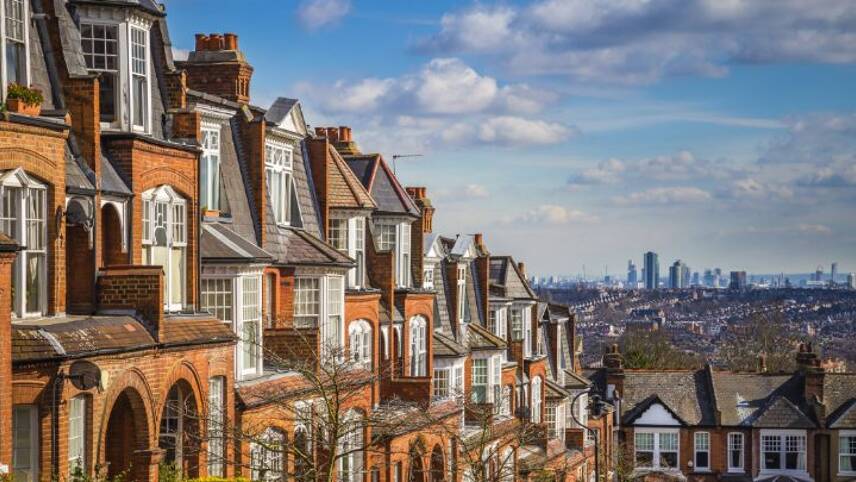Register for free and continue reading
Join our growing army of changemakers and get unlimited access to our premium content

The average UK home will see dual-fuel bills rise above £1
Currently, all retrofit works for existing buildings, such as the installation of triple glazing or insulation, have a 20% VAT rate applied. Industry bodies including the Association for Decentralised Energy (ADE) and the MCS Charitable Foundation are calling for the rate to be lowered to zero in light of the ongoing energy price crisis.
Wholesale gas prices in the UK are currently more than four times as high as they were this time last year. This is also pushing electricity prices up, as gas-fired power plants account for around 40% of the UK’s electricity generation mix. The issue is largely attributable to discrepancies in international gas supply and demand patterns, with gas being an internationally traded commodity.
Ofgem recently announced that, from April 2022, it will increase the price cap on dual-fuel energy bills by 54%. This will protect suppliers but will mean higher bills for most households. So far, the Government’s response plans have involved providing immediate rebates to cover some of the additional costs, and promising more funding support for home-grown renewable energy in the future.
Groups including the ADE and the MCS Charitable Foundation have joined dozens of other organisations in arguing that the major missing piece of the puzzle is now a national strategy for swiftly improving the energy efficiency of the UK’s existing building stock.
The ADE this week delivered an open letter to Chancellor Rishi Sunak, stating that a temporary cut to VAT for retrofitting would help the UK with its net-zero agenda and with selling the ‘benefits of Brexit’, as well as with the energy price crisis.
The letter also argues that the removal of this VAT would also create 42,000 extra full-time equivalent construction jobs and an additional 53,000 jobs in the wider economy over five years.
“Zero-rating VAT is a simple incentive to increase private investment that works with the market for home renovation,” said the ADE’s chief executive Lily Frencham. “It would simplify a complex system and result in a net gain for the UK economy, as well as improving the UK’s housing stock and enabling more families to enjoy warm and healthy homes – ultimately, by failing to act on this, the government is missing a significant opportunity to deliver on net-zero compliant buildings.”
Separately, the MCS Charitable Foundation has delivered its own report on the benefits of applying zero VAT to the Treasury this week.
That report, first published in October 2021, outlines how 70% of the UK’s owned homes are not eligible for any of the Government’s current grant schemes for retrofitting. It argues that, in the face of a cost-of-living crisis, high VAT and poor access to grant schemes will deter many homeowners and landlords from paying for retrofitting.
It also outlines that the cost to the Treasury of taking this action would be “minimal”.
The MCS’s work is being supported by organisations including the National Energy Foundation, Federation of Master Builders, Solar Energy UK and the ADE. Its call to action builds on similar recommendations from organisations including the UK Green Building Council and Age UK.
Earlier this month, the Irish Government unveiled its National Retrofit Plan. The Plan will see households able to claim grant funding for up to 50% of the cost of deep retrofitting, up from 30%. There will also be additional free upgrades for fuel-poor homes and an enhanced grant rate of 80% for attic and cavity wall insultation.
A nation of leaky buildings
The UK Government has long been urged by its advisors at the Climate Change Committee (CCC) to address the fact that the nation’s housing stock is, compared to other developed economies, performing poorly on energy efficiency.
Currently, around 46% of the UK’s housing stock is meeting Energy Performance Certificate (EPC) band C or above, according to official Government figures. This is a considerable improvement since 2008, but still leaves the UK behind nations such as France and Germany.
An energy inefficient building stock causes issues not only in terms of energy bills and fuel poverty, but for the delivery of the UK’s net-zero target.
The UK’s Heat and Buildings Strategy, published last October, details £3.9bn of funding, including a £950m Home Upgrade Grant scheme. The Strategy states that the policies it details could bring up to 70% of England’s homes to Energy Productivity Certificate (EPC) band C or above by 2035.
Green economy experts have argued that this level of funding is not sufficient in the face of the net-zero transition nor the energy price crisis. The scheme’s predecessor, the failed Green Homes Grant, had covered some £2bn of funding but only 10% of this budget was spent.
Sarah George


Please login or Register to leave a comment.